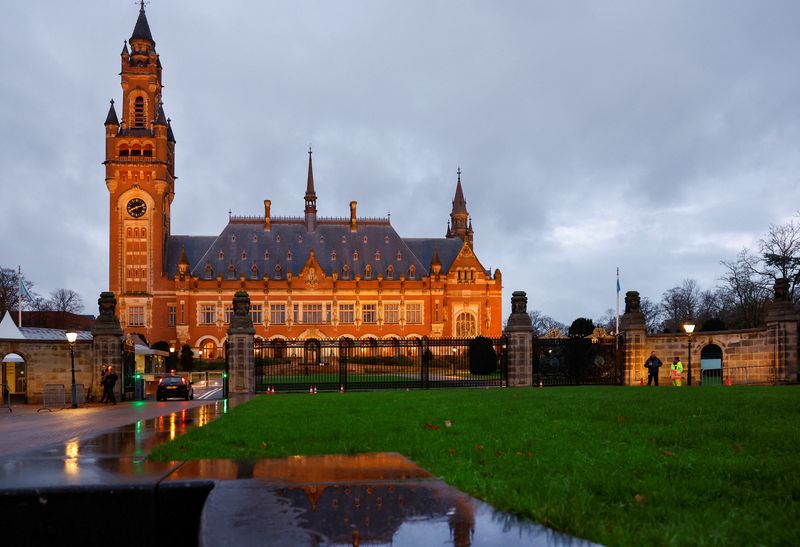By Stephanie van den Berg
THE HAGUE (Reuters) – The World Court will conclude hearings on Friday on countries’ legal obligation to combat climate change and whether large states that contribute most to greenhouse gas emissions should be liable for damage to small island states .
The International Court of Justice will issue an advisory opinion, likely in 2025, on these questions that could be raised in climate change lawsuits around the world.
During two weeks of hearings, wealthy countries in the Global North broadly argued that existing climate treaties like the Paris Agreement, which are largely non-binding, should form the basis for determining countries’ responsibilities.
In turn, developing countries and small island states that bore the brunt of climate change sought robust measures to reduce emissions and regulate financial support from rich polluting countries.
“We’ve heard a lot about the Paris Agreement as the solution, but the reason climate-sensitive states have gone to court is because the Paris Agreement has failed,” said Payam Akhavan, a lawyer representing small island states, citing predictions. that instead of the targeted 1.5°C, temperatures are expected to rise by 3°C by 2100.
Nearly a hundred states and organizations participated in hearings at the ICJ, the UN’s highest court for inter-state disputes, where small island states had led efforts to seek advice from the UN General Assembly.
Opinions of the World Court are not binding, but have legal and political weight. Experts say the court’s opinion on climate change could set a precedent in climate change-related lawsuits in courts from Europe to Latin America and beyond.
‘CLEAR MESSAGE’
“The power of an advisory opinion from the International Court of Justice lies not only in its direct enforcement, but also in the clear message and guidance it will send to the many courts around the world grappling with the issue of states’ obligations to tackle the climate crisis and fix the climate. harm,” Nikki Reisch, director of the Climate & Energy Program at the Center for International Environmental Law, told Reuters.
The hearings began in early December with the Pacific island nation of Vanuatu urging judges to recognize and repair the damage caused by climate change.
The world’s biggest emitters, the US and China, along with countries such as Saudi Arabia and several EU member states, argued that existing treaties brokered through UN-backed climate change negotiations and which are largely non-binding, are the benchmark should be in determining the obligations of states. .
“China hopes that the court will uphold the UN climate change negotiation mechanism as the main channel for global climate governance,” Ma Xinmin, legal adviser at China’s Foreign Ministry, told the court.
Under the Paris Agreement, countries must update their national climate plans, known as Nationally Determined Contributions (NDCs), every few years, with the next round due no later than February 2025.

The UN has asked countries to draw up economy-wide plans that demonstrate a greater, non-binding ambition to keep global warming below 1.5 degrees Celsius.
“NDCs relate to an obligation of effort, not to results,” a representative of the Saudi Energy Ministry told the court, in comments that worried those calling for binding rules to reduce fossil fuel use.


